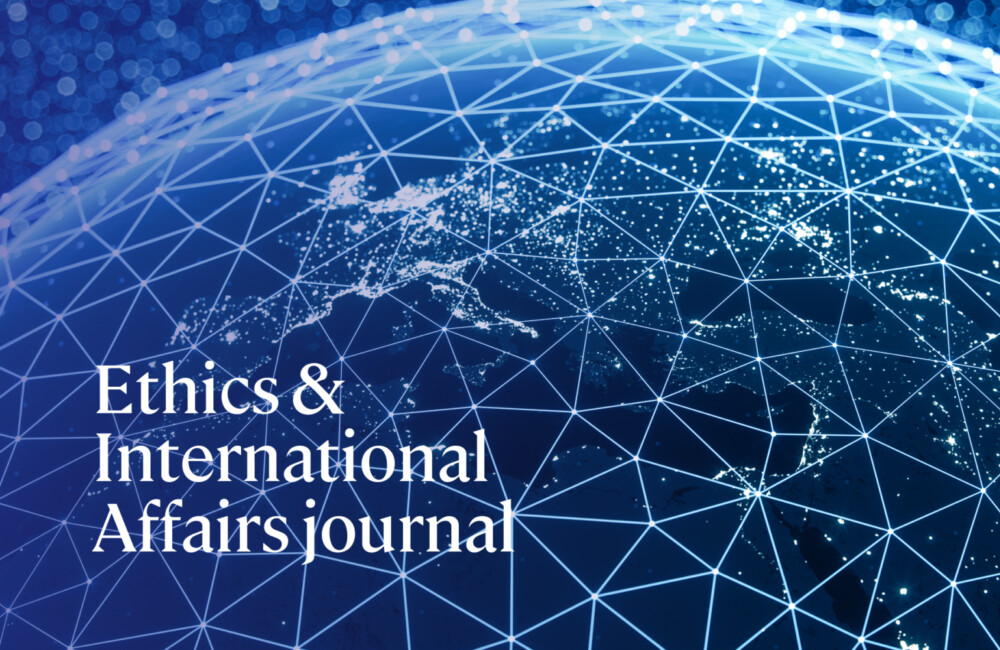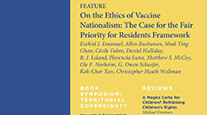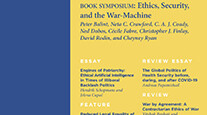One key challenge confronting a design project of this kind is that many of the institutions fundamental to state-based democracies—such as centralized "sovereign" agencies of public power, territorial constituencies, inclusive public deliberation, and electoral representation—would be extremely difficult to implement on a global scale. Despite some partially successful examples at the regional level, such as the European Union, such comprehensive projects seem unlikely to be viable at the global level, at least in the near to medium term. In order to devise a workable institutional framework for global democracy, it is therefore necessary to consider how the key institutional dimensions of a democratic system could be adapted to the prevailing global sociopolitical environment.
Mature democratic systems typically incorporate institutional mechanisms of multiple types, including constitutional structures defining the scope and limits of public powers and decision-making communities, deliberative institutions for the development of collective social judgments and decisions, and representative processes incorporating mechanisms for the authorization and accountability of public decision-makers. Any comprehensive set of practical proposals for the design of democratic global institutions would need to devise some innovative strategies for realizing democratic ideals along each of these institutional dimensions under the political circumstances of contemporary global politics. This recognition does not imply that more long-term and comprehensive projects of global democratization (which depend on the transformation of certain fundamental features of the contemporary global political order) are necessarily misguided or unrealizable. Rather, it acknowledges that any institutional proposals that are practical in character—that is, concerned with prescriptions for political action here and now—must accommodate certain constraints. More long–term and comprehensive democratic projects remain important, but are more useful as idealized evaluative benchmarks in relation to which more short–term and specific institutional proposals can be assessed and compared.
A second important challenge to the project of global democratization is posed by the magnitude of the disparity between democratic ideals and the prevailing political realities of global political decision–making institutions. Existing global political institutions are characterized by extreme inequalities in participation in decision-making and by the concentration of many significant forms of global public power within institutions (states, corporations, and broader governance regimes) that are not democratically accountable to those they affect. Moreover, this profoundly undemocratic institutional status quo is embedded within deeper social structures at a global level (sustaining severe material inequalities, linguistic and cultural cleavages, and so on), which are likely to be very inhospitable to the operation of certain democratic processes, such as inclusive participatory public deliberation and fair competitive elections, at least in the short term. This means that the problem of democratic transition—entailing questions about viable transformative pathways to a more democratic global order—must be tackled as a central issue in any practical project of global institutional design.
The three articles in this symposium represent contributions to a broader project aiming to tackle these dual challenges of institutional innovation and practical accommodation—of devising new mechanisms for implementing democratic ideals on a global scale, while working within the political constraints and transformative dynamics of the existing global political order. The articles have been developed from papers first presented at a set of panels convened at the World International Studies Conference in Ljubljana, Slovenia, in 2008, as part of a broader project on "Global Democratic Design." Additional papers were presented by Daniele Archibugi, Christian List and Mathias Koenig-Archibugi,3 Raffaele Marchetti, and Stefan Marschall, with Kimberly Hutchings participating as a discussant. We are grateful to these other participants for their contributions to the broader project and to the development of the three papers published here.
An important observation to make in introducing these three articles concerns the nature of the analytic method required by the practical project of institutional design in which each—in its own way—is engaged. At a very general level, the kind of institutional critique and prescription undertaken here involves a hybrid method of political analysis, incorporating both normative and positive social–scientific elements. First, it involves normative analysis of the democratic institutional standards appropriate to the global polity under conditions of globalization. In addition, it involves a multipronged positive analysis: of the preconditions for different types of democratic institution (such as the qualities of global citizens, the distributions of social powers and resources, the scope and depth of cultural allegiances and solidarities, and so on); of the prevailing political circumstances in global politics; and of feasible transformative pathways toward global democratization.
In bringing together normative and positive analysis to arrive at concrete prescriptive proposals regarding how global democratic ideals could best be instituted in practice, viable analytic strategies can range across a spectrum with a more ideal-theoretical approach at one end and a more pragmatic and institutionally piecemeal approach at the other. On the former approach, the problem of institutional design is tackled by seeking to identify what the most democratic global institutional arrangements would be under somewhat idealized practical conditions—for instance, if we could assume that the prescribed democratic reforms could be implemented with full support from powerful states and other actors, and that transformations could be achieved without creating unacceptable costs in relation to other (extra-democratic) values, such as welfare or economic justice. A number of scholars who have approached the problem of global democratization in such ideal-theoretical ways have arrived at design proposals for global or cosmopolitan democratic institutions of varying kinds.4
At the other end of our methodological spectrum, institutional design can proceed instead by identifying embryonic democratic structures and processes in existing micro–institutional locations within the global order, and taking these as the building blocks for institutional design. Instead of seeking to design macro-democratic institutions from scratch, based on theoretically devised democratic blueprints, this more pragmatic approach looks for institutional spheres where some transformative momentum for democratization can already be found, and employs theoretical reasoning to identify strategies for strengthening this momentum and nurturing the democratic potential it embodies. In other words, the broad logic of this approach is to begin with some existing set of institutional structures, and to consider how these could be incrementally democratized along some plausible reformist pathway.5
One of the things that the three contributions in this section have in common is that—to different degrees and in different respects—they each adopt this latter pragmatic and piecemeal approach to the project of democratic institutional design. None of these contributions seeks to articulate or defend an idealized system-level democratic model for global politics. Instead, each identifies a particular institutional sphere within the existing system of global governance and tries to work out how the embryonic democratic processes within that sphere could be nurtured and strengthened, or how latent democratic potentials could be harnessed and institutionally realized. Kate Macdonald and Terry Macdonald identify the democratic credentials of embryonic institutions of accountability emerging in response to the power wielded by corporations through global supply chains, and consider how these democratic potentials could be harnessed and more strongly entrenched through appropriate institutional reforms. Jens Steffek examines some discourses and practices of "public accountability" emerging at the level of global governance and considers how their democratic credentials could be bolstered via greater responsiveness to global citizens acting within a transnational public sphere. John Gastil, Colin J. Lingle, and Eugene P. Deess identify the International Criminal Court (ICC) as one important institutional context where democratic values and institutional legitimacy could potentially be fostered through establishing a role for the deliberative global "micro–publics" embodied in citizens' juries.
While this piecemeal institutional approach can contribute a great deal to our understanding of feasible pathways along which global democratization might proceed, we should nonetheless recognize that it cannot fully substitute for more familiar "macroinstitutional" analysis, which keeps a firmer focus on the system–level features of the global institutional structure. In evaluating the institutional proposals set out in these papers, it is therefore helpful to consider also how democratic processes within particular institutional contexts (such as economic supply chains or the ICC) might affect the prospects for democratization elsewhere within the wider global institutional scheme, and to consider how these proposals shape up when viewed in this broader perspective.
Thinking about these system-level institutional questions inevitably brings us back to consideration of some of the more traditional preoccupations of democratic theory, concerned with the way constitutional structures, deliberative processes, and representative mechanisms should be configured and institutionally connected within an overarching democratic "system" or "polity." To properly assess the contribution made by the piecemeal institutional proposals set out here, we should also reflect further upon how traditional democratic ideals of constitutions, deliberation, and representation ought to be interpreted in the context of contemporary global politics, and how comfortably these specific proposals might fit within broader constitutional, deliberative, and representative global structures.
These system-level institutional challenges are themselves very complex, so we raise them here only with the hope of situating this symposium’s contributions within a wider perspective, and not with the promise of offering satisfactory resolutions to the problems they raise. There are of course many wider system-level design questions, including: What range of powers should be accorded to global political agencies, and how should these powers be limited to ensure the protection of rights? How should public power be divided among jurisdictional levels and functions? How should the boundaries of decision-making communities (constituencies) be delineated—or, in other words, how should the global "demos" or "demoi" be constituted? What institutional forms could best facilitate inclusive democratic deliberation within a global polity in the face of many geographical, cultural, linguistic, and political impediments to global political dialogue? And what are the most promising mechanisms for achieving legitimate democratic representation at a global level, given the many potential limitations to the role elections could play within a global democratic system imposed by the scale and territorial dispersion of many global constituencies, and the socioeconomic inequalities and differentiated interest intensities that often exist among and within them?
The broader project of global democratic design requires us to pursue theoretical work simultaneously on both the macro-level and the micro-level institutional fronts that we have discussed, utilizing varying analytic strategies: the sort of pragmatic and piecemeal analysis found in the contributions to this symposium alongside more ideal-theoretical system-level design of the kind undertaken by the well-known cosmopolitan democrats. As we proceed in this manner we must always keep in mind how the two modes of normative analysis fit together, and correspondingly how we might achieve effective democratic transformation in the present while keeping one eye focused on the ideal democratic endpoints to which we aspire in the future. Our hope is that the articles presented here will make some small contribution to this ongoing process, and in doing so will help move debates about global democracy forward.
NOTES
1 David Held, Democracy and the Global Order: From the Modern State to Cosmopolitan Governance (Cambridge: Polity Press, 1995); and Daniele Archibugi, David Held, and Martin Köhler, eds., Re– Imagining Political Community: Studies in Cosmopolitan Democracy (Cambridge: Polity Press, 1998).
2 Robert Keohane and Joseph Nye, "Redefining Accountability for Global Governance," in Miles Kahler and David A. Lake, eds., Governance in a Global Economy: Political Authority in Transition (Princeton: Princeton University Press, 2003), pp. 386–411; and Robert Keohane, Stephen Macedo, and Andrew Moravcsik, "Democracy-Enhancing Multilateralism," International Organization 63, no. 1 (2009), pp. 1–31.
3 Christian List and Mathias Koenig-Archibugi, "Can There Be a Global Demos? An Agency–Based Approach," Philosophy & Public Affairs (forthcoming, 2010).
4 Luis Cabrera, Political Theory of Global Justice: A Cosmopolitan Case for the World State (London: Routledge, 2004); David Held, Global Covenant: The Social Democratic Alternative to the Washington Consensus (Cambridge: Polity Press, 2004); Daniele Archibugi, The Global Commonwealth of Citizens: Toward Cosmopolitan Democracy (Princeton: Princeton University Press, 2008); and Raffaele Marchetti, Global Democracy: For and Against: Ethical Theory, Institutional Design, and Social Struggles (London: Routledge, 2008).
5 Andrew Kuper, Democracy Beyond Borders: Justice and Representation in Global Institutions (New York: Oxford University Press, 2004); and Terry Macdonald, Global Stakeholder Democracy: Power and Representation Beyond Liberal States (New York: Oxford University Press, 2008).



